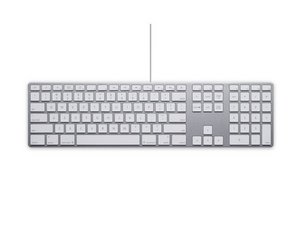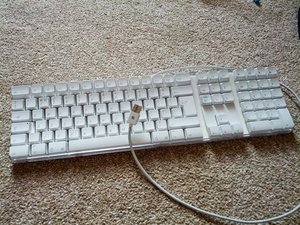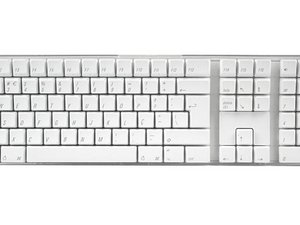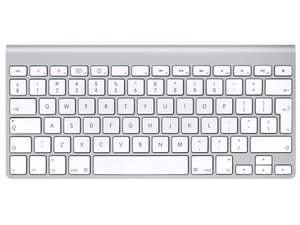|
3 Answers 26 Score |
Water spilled on keyboard and now rows of random keys arent working |
|
36 Answers 23 Score |
Batteries corroded & stuck inside Apple Wireless Keyboard (Aluminum) |
|
24 Answers 18 Score |
Some keys stopped working on Apple Wired Keyboard |
|
9 Answers 28 Score |
Changed batteries and it doesn't power up after that. |
Background and Identification
Apple has designed keyboards around its line of computers since the inception of the Apple line through the reign of the Macintosh. Although the first Apple computer was sold as a bare PCB without the inclusion of a keyboard, the 1977 Apple II included a keyboard built into the case of the computer, while the Apple III saw the addition of a numerical pad. These early Apple keyboards featured brown keycaps with white writing.
The Lisa saw the first Apple keyboard not integrated into the case of the computer, although it used a TRS port making it unique to the Lisa. Moving forward, Apple designed a proprietary port to be used in the Macintosh lines as well as newer Apple line computers called the Apple Desktop Bus (ADB), which allowed for multiple peripherals to be daisy chained together. All Apple keyboards from the release of the first Macintosh until 1998 connected through this ADB port, and featured some shade of grey keycaps.
The release of the first iMac in 1998 marked the transition from the use of ADB to USB in Apple’s peripheral offerings. These keyboards were released in a variety of colors throughout the years, using translucent plastics in black, bronze, and white. There was also a wireless keyboard released during this time, although still with the older, all-plastic design and thicker keycaps.
In 2007, Apple released the first of its contemporary line of keyboards, featuring a slimmer design, with an aluminum body and thinner keys. This “Apple Wireless Keyboard” was the first to integrate Apple’s specific function keys, such as media and brightness controls. There was a wired version of this keyboard released concurrently to the wireless, featuring the same aluminum body and thin design.
In 2015, Apple introduced the rechargeable “Magic Keyboard,” which had an integrated lithium-ion battery rather than accepting standard double A batteries like previous wireless versions. These keyboards charge with the proprietary lighting connector used on iPhones starting with the iPhone 5. This keyboard came in the some of the colors offered for newer MacBooks, like silver and space grey.
As of 2020, Apple has released a newer Magic Keyboard marketed specifically for the iPad Pro which uses a USB-C charging port.
Additional Information
Watch this video from the BackOffice Show for more Apple Keyboard repair tricks.










